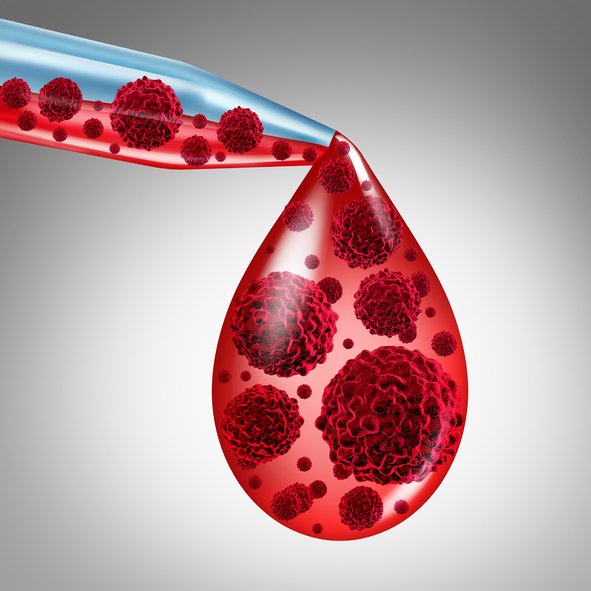
According to the American Cancer Society, African Americans have the highest incidence, death rate and shortest survival time of any racial group in the U.S. for most cancers. The causes of these inequalities are complex and may include barriers to high-quality cancer prevention, early detection and treatment services.1
Multiple myeloma is one of the leading causes of cancer deaths among African Americans. Multiple myeloma is the third most common blood cancer, but it disproportionately affects the African American community. In fact, African Americans are almost twice as likely to be diagnosed with and die from multiple myeloma compared to Caucasian Americans.
Dr. Craig Cole, a cancer specialist from the University of Michigan Health Systems, recently spoke with BlackDoctor.org about the facts all African Americans need to know. He is joined by Cheryl Boyce, former Executive Director of the Ohio Commission on Minority Health and a MM patient.
Multiple myeloma is the 14th most common cancer in the U.S., making up about 1.4 percent of new cancer cases, and 1.9 percent of cancer deaths. In a group of 100,000 African‑Americans, researchers predicted 14.8 men and 10.5 women would be diagnosed with multiple myeloma. In contrast, in a group of 100,000 whites, about 7.2 men and 4.3 women would be diagnosed.
Many African‑Americans may not be aware that they are at increased risk for multiple myeloma. A pilot study in the June 2012 Journal of Cancer Education by researchers at the Mayo Clinic in Jacksonville, Fla., in collaboration with neighboring African‑American churches, found that 67 percent of the 236 people surveyed had never received information about multiple myeloma.
Part of the problem, says Gerardo Colon-Otero, a medical oncologist-hematologist at the Mayo Clinic who co-led the study, is that “multiple myeloma is much less common than prostate cancer and breast cancer.” Another factor, he says, is “the lack of awareness among the oncologists and the population at large of these disparities.”
Brendan Weiss, a medical oncologist-hematologist at Penn Medicine’s Abramson Cancer Center, says one of the problems is that most people included in myeloma studies have been whites. Without increasing the participation of African‑Americans in clinical research, he says, “many of the questions regarding disparities in multiple myeloma will be very difficult to answer.”
Yes, multiple myeloma is a treatable cancer.
Multiple myeloma treatment options have increased significantly over the last 10 years. New multiple myeloma treatments have resulted in improved survival rates among myeloma patients. Even more encouraging, there are many promising new therapies under investigation now. We are not just accelerating the development of the next multiple myeloma treatment, but by seeking to customize treatments based on our mapping of a patient’s genome, we are accelerating the development of the right treatment for each patient who urgently needs it.
Today, we know that certain DNA alterations indicate how aggressive the myeloma is and, in some cases, test results can help guide treatment decisions or determine eligibility for multiple myeloma clinical trials.
Studies have shown that patients with the disease have better outcomes when treated with a proteasome inhibitor, such as Velcade.
There is no one standard multiple myeloma treatment. A patient’s individual treatment plan is based on a number of things, including:
> Age and general health
> Results of laboratory and cytogenetic (genomic) tests
> Symptoms and disease complications
> Prior myeloma treatment
> Patient’s lifestyle, goals, views on quality of life, and personal preferences
In a 2007 study, researchers asked 179 Connecticut women with multiple myeloma and 691 women who were free of the disease to fill out questionnaires listing how often they ate common foods. They found that certain food items were linked with a lower risk of myeloma. These included cooked tomatoes, cruciferous vegetables (like broccoli and Brussels sprouts), fresh fish, and vitamin A. On the other hand, cream soups, ice cream, and pudding were linked to a greater risk of the disease. The study's authors report that eating more vitamin D and calcium might be linked to a lower risk, but eating more carbohydrates might be linked to a higher risk.
Earlier studies of people in Italy and Yugoslavia found an association between butter consumption and higher risk, while more vegetable consumption was associated with a lower risk. Several studies found that eating more fish was also associated with a lower chance of developing multiple myeloma.
Another food-related connection to multiple myeloma might involve the amount of food you eat in general. Several studies have reported a higher risk of multiple myeloma in overweight and obese people. In one study of more than 37,000 postmenopausal women, those with a waist circumference of more than 36 inches had double the risk. A Canadian study found that overweight people had a 50 percent higher risk, and obese people had more than double the risk.








